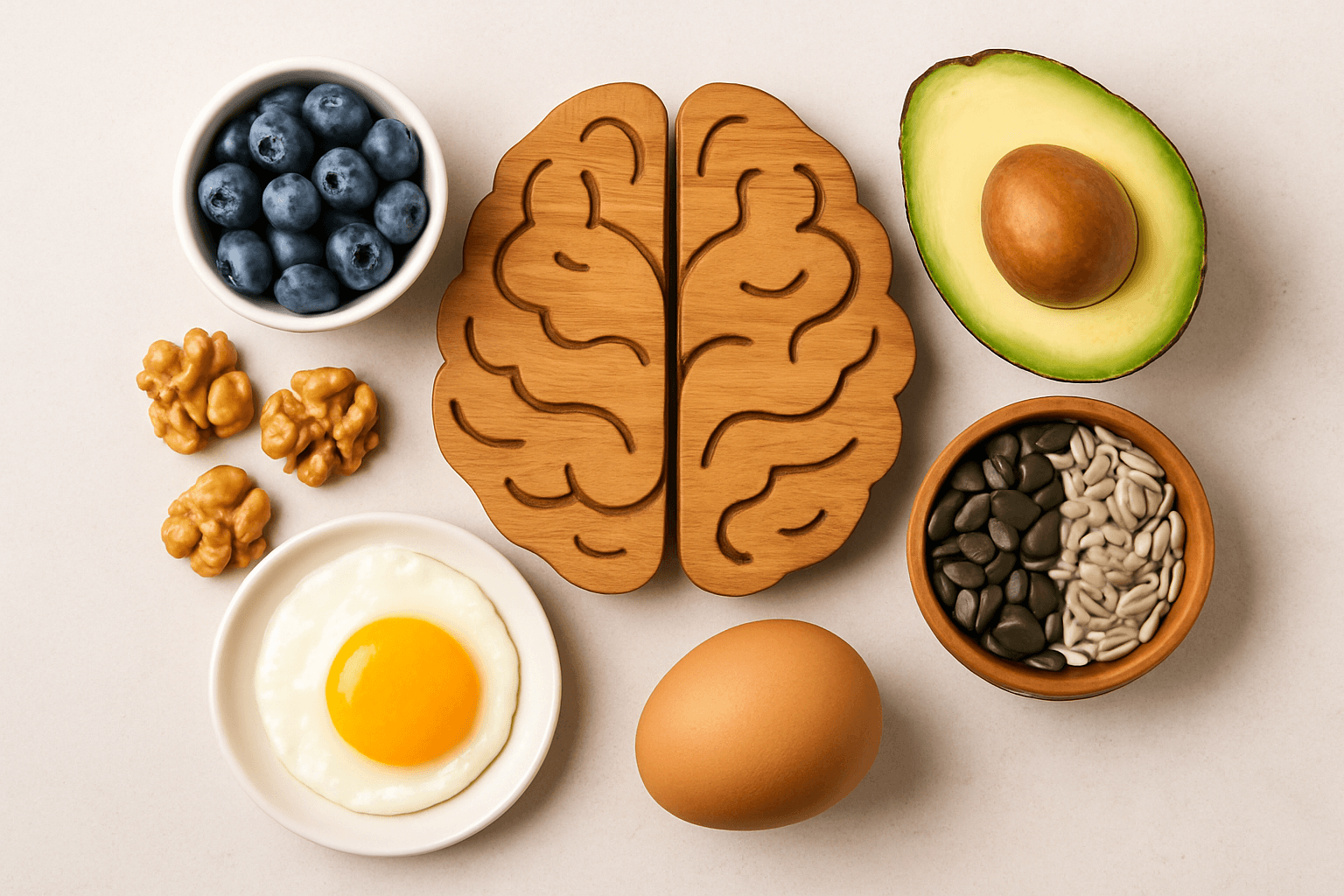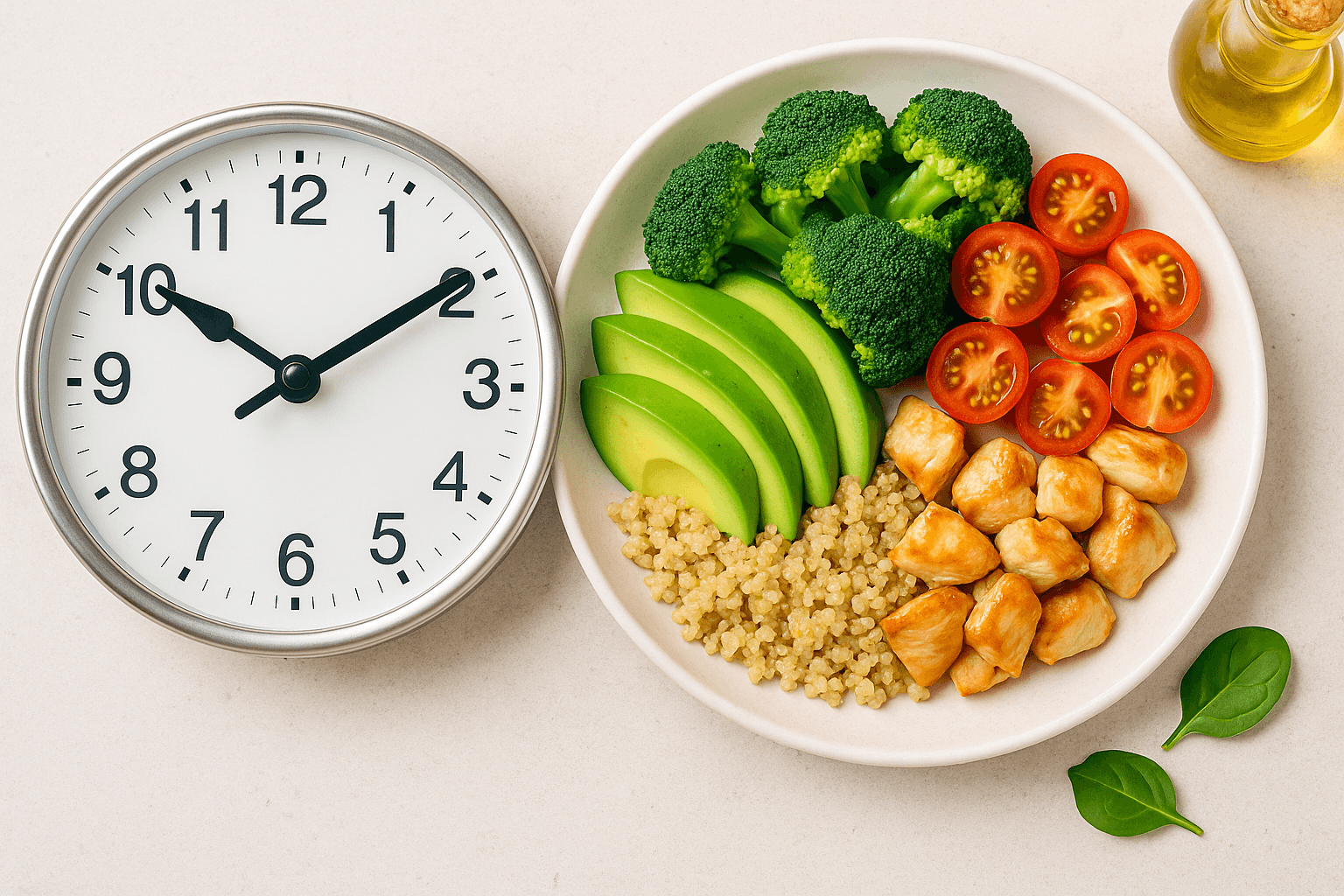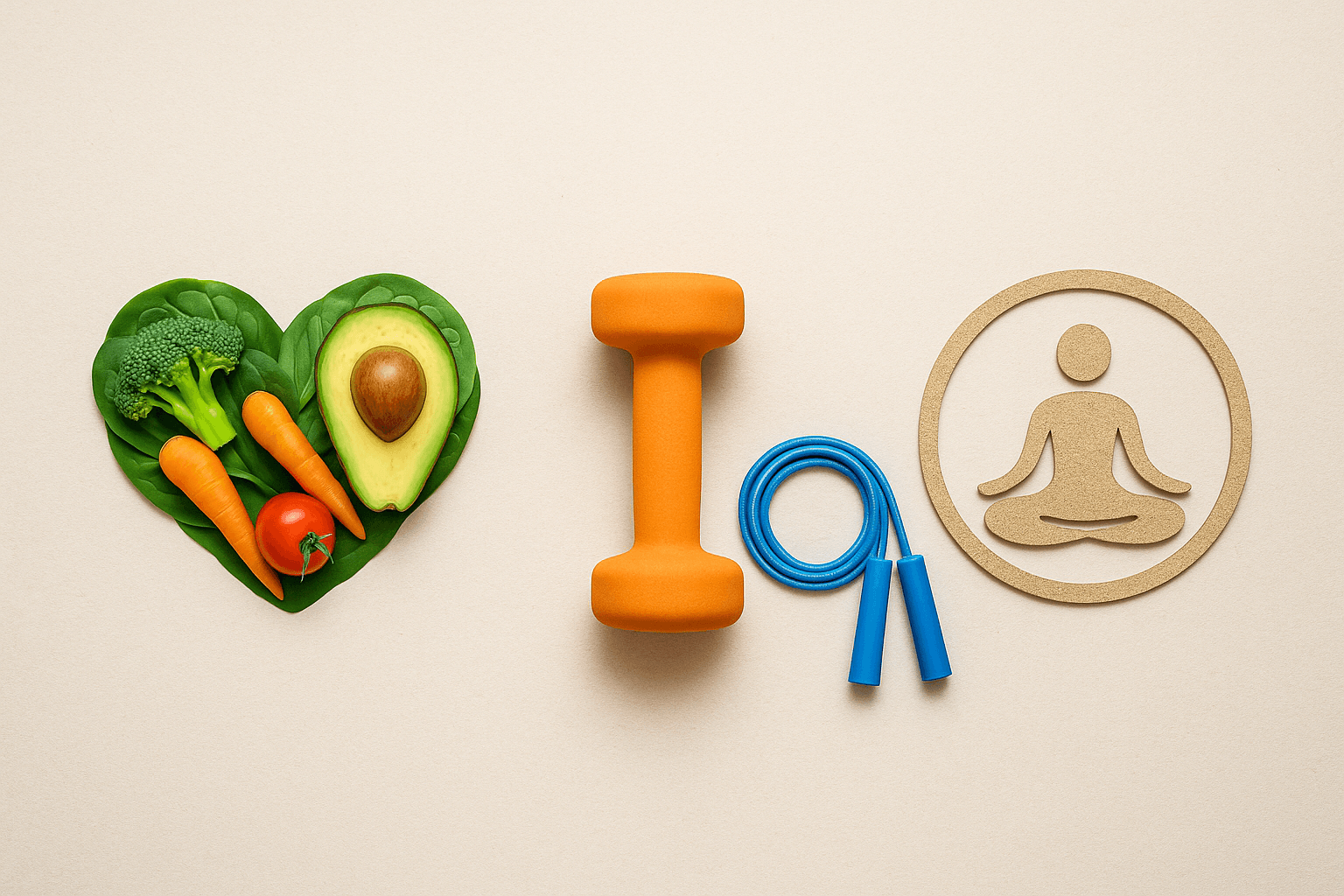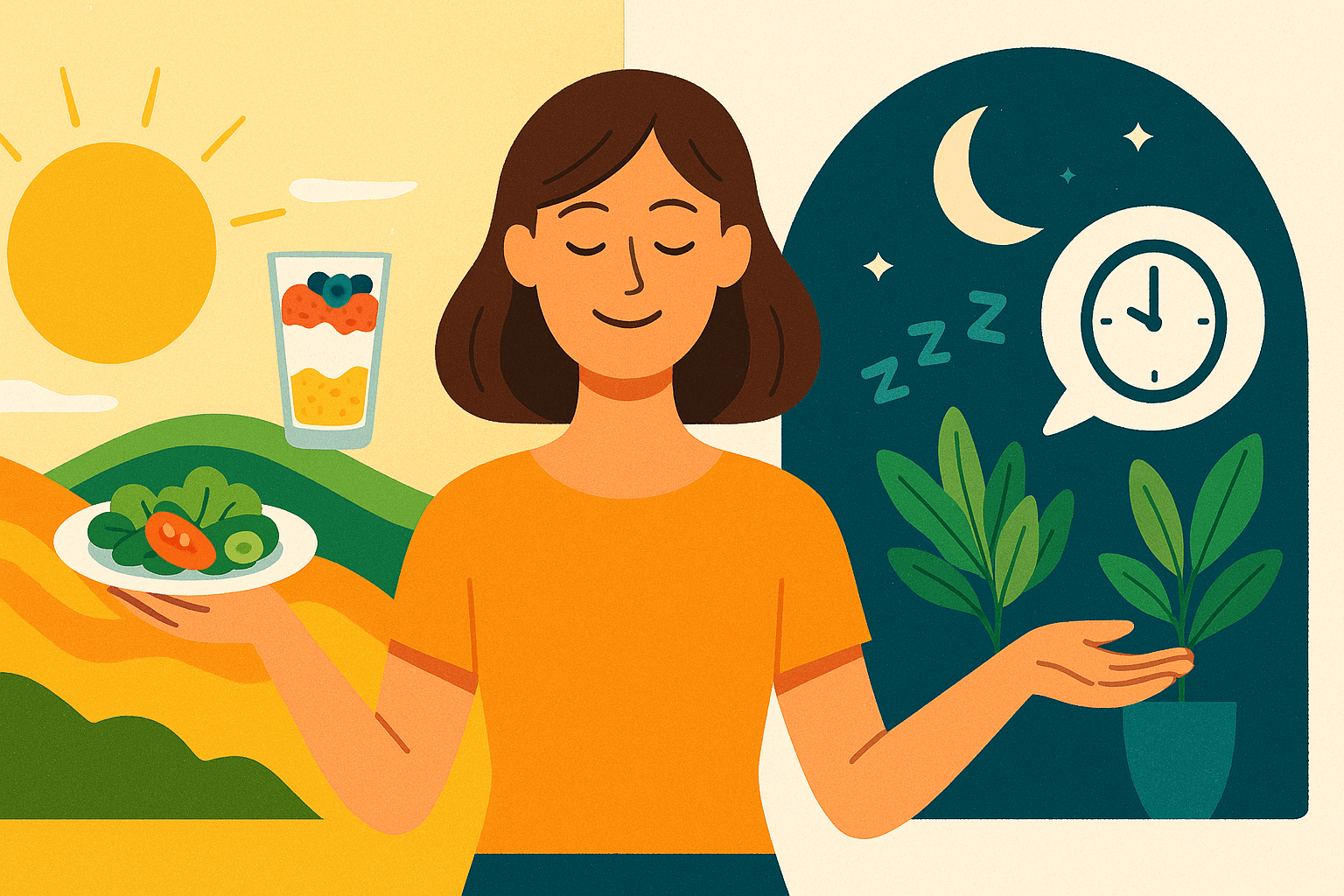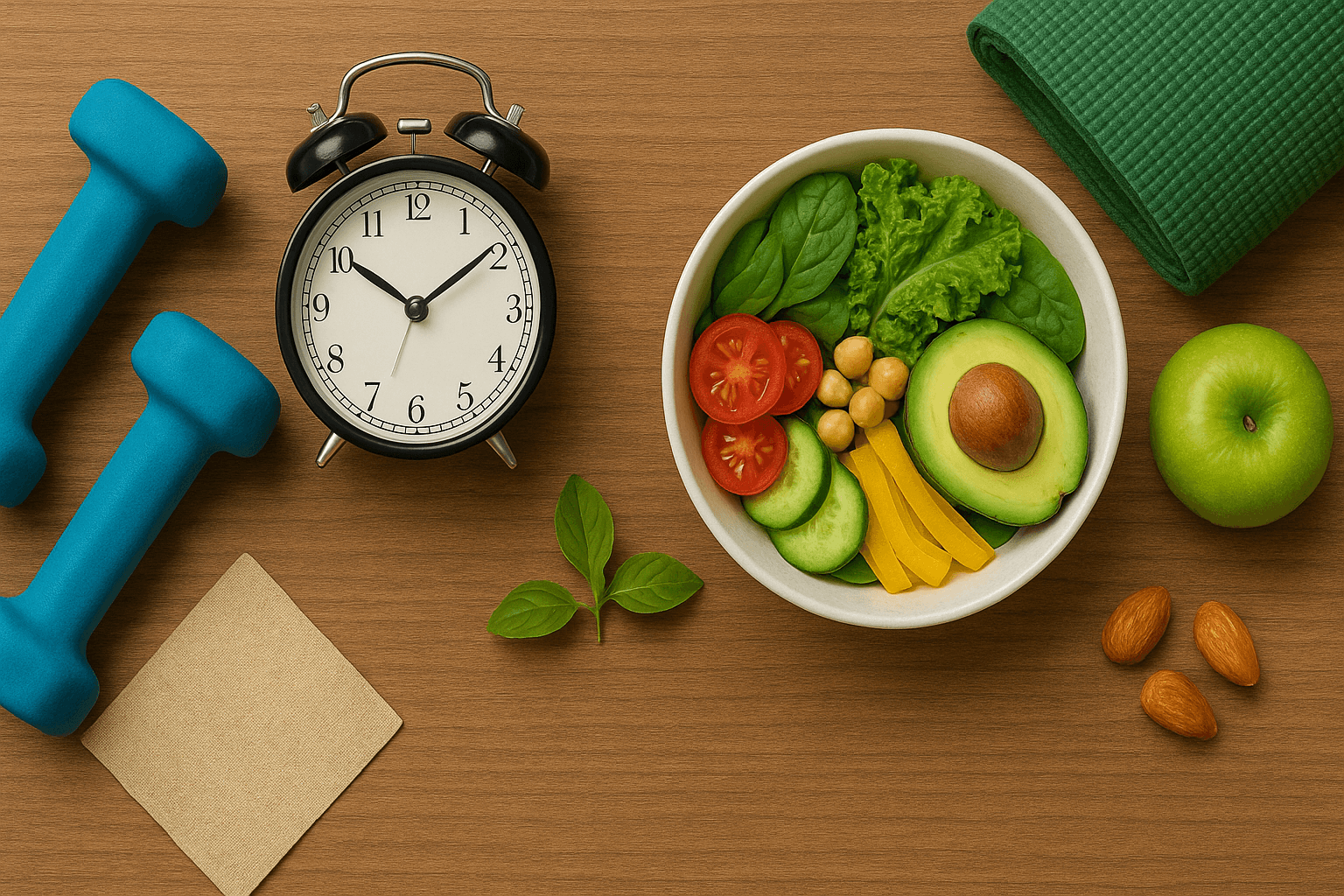MICRO-HABITS FOR A HEALTHY LIFESTYLE: WHY TINY CHANGES OUTPERFORM GRAND RESOLUTIONS
Published on July 29, 2025
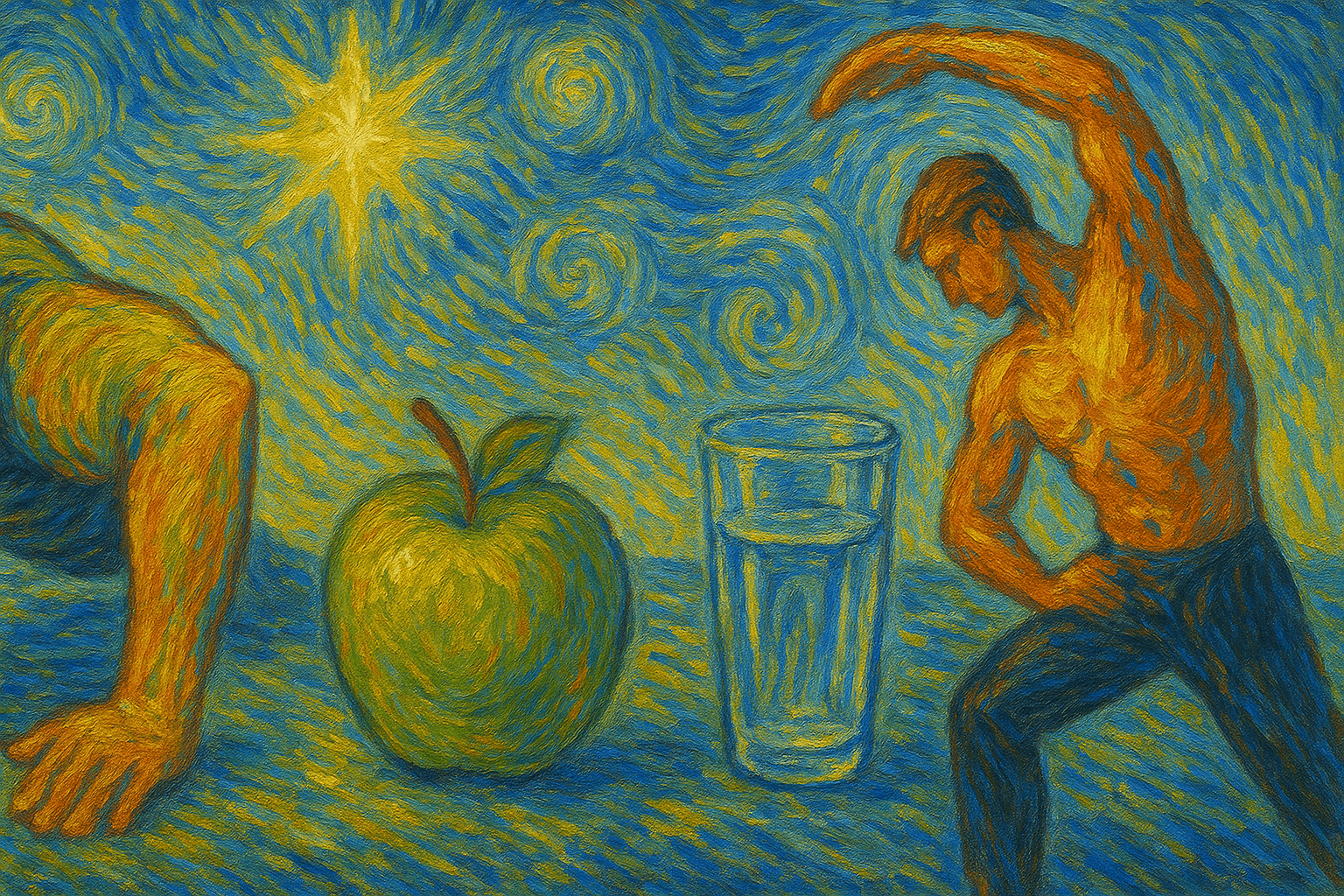
In today’s fast-paced, high-stakes world of health and wellness, we’re bombarded with bold promises and dramatic plans — “Lose 30 pounds in 30 days,” “Run a marathon in six weeks,” “Never eat sugar again,” “Get in and get out of the gym in 20 minutes.” These pledges are intoxicating, especially if you’re desperate for genuine change. They ignite a feeling of excitement, cause you to dream of more and suggest to you that an entirely new existence is just one big jump away. But for the vast majority of people, these grand resolutions last just about as long as a New Year’s firework — burning bright (in our best of intentions) and then fading away when the reality of life gets in the way.
What if there’s a better way? What if enduring transformation does not happen in sweeping breakthroughs, but in the small, almost invisible habits of a lifetime — like a single decision repeated 1,000 times? This is the delicate magic of micro-habits: tiny, sustainable self-loving acts that build into robust health, self-trust, and long-term happiness.
Why Tiny Habits Work: The Science of Permanent Habit Change
Micro-habits leverage the mind’s core desire for simplicity and unison. Human motivation is a fragile thing, easily frittered away by stress, busyness, or even bad weather. Big plans require big reserves of willpower, and few of us have that in boundless quantity. Micro-habits work around this because they are so simple, so easy, so automatic, that they hardly feel like “work.” A sip of water before the coffee, a stretch before bed, a deep breath at your desk — these are tiny acts that are next to impossible to go soft on.
When you repeat a micro-habit, your brain immediately gets a hit of dopamine, the reward chemical that is released every time you receive a repetitive task. You begin to identify as a person who makes healthy choices, even if they’re small ones. Each micro-habit, over time, builds self-efficacy — “I can do this!” —which is the actual principle of transformation. And by piecing together hundreds of these micro-accomplishments, new neural pathways are formed such that over time, healthy living becomes instinctual as opposed to a daily battle of forced willpower.
Building Micro-Habits Into Your Day
Begin With The Laughably Easy:
The most successful micro-habits are often so small that you barely even notice you’re doing them. Want to get stronger? Do one push-up after you brush your teeth. Hoping to drink more water? Sip some immediately after getting up. Craving more calm? Shut your eyes for 10 seconds before your initial appointment. By making your new behavior “too easy to fail,” you ensure success every day and build momentum and confidence.
Attach New Habits to Old Routines:
Habits “stick” best when they’re attached to something you already do, every single day. Connect your micro-habit to an established anchor: after starting the coffee maker, stretch your arms; after washing your face, say one thing you’re grateful for; after putting on your shoes, walk around the block. These cues make the new behavior automatic just like the old one.
Celebrate Every Win:
A little self-celebration can be a powerful thing; never underestimate the power of a little self-celebration. Take a moment to appreciate each time you complete your micro-habit: put a check mark next to the date, give yourself a thumbs-up, smile at yourself in the mirror, or stop for a moment and feel good about the fact you’re steadily showing up. These little celebrations rewire your brain to want to do more healthy action.
Expand Gradually:
Only expand your micro-habit after it’s so automatic that you hardly remember you’re doing it. When one push-up is a piece of cake, make it two. When 30 seconds starts to feel comfortable, try stretching for a minute. Progress is made through repetition, not intensity. Eventually, your micro-habits have a way of expanding into robust habits — without ever feeling like they were too much.
Real-Life Micro-Habits to Keep You Healthier
Nutrition:
Throw a handful of spinach in your morning smoothie
Have a bonus vegetable to your dinner
Trade in one soda or sugary drink for water or herbal tea
Keep a piece of fruit next to your keys and take it when you leave
Toss seeds or nuts on salads and soups
Movement:
Make it a habit to stand up and stretch each time you head to the bathroom
Opt for the stairs instead of the elevator just once a day
Try yoga pose or gentle stretch before bed
Even just parking further from work or the store can help
Sleep:
Establish a daily bedtime — just five minutes earlier than usual
Turn the lights down after dinner to signify “wind-down” time
Put screens to bed while brushing your teeth at night
Put your phone across the room so you have to get out of bed in the morning to turn off the alarm
Stress & Mindfulness:
Before checking emails, take one slow, deep breath
Jot down on a sticky note one thing you’re grateful for each morning
Play your favorite song while you’re putting on clothes
Spend a mindful minute — your eyes closed, attending to sounds and sensations — before beginning work
Social Health:
Find someone to genuinely say “thank you” to every day
Text a friend and say you’re thinking of him or her
Have a healthy family meal — even if it’s only for a few minutes at the table
Praise a co-worker or loved one weekly
Overcoming Barriers and All-or-Nothing Thinking
Our culture adores the myth of the overnight turnaround. You may tell yourself, “If it’s not difficult, it doesn’t count,” or, “One minute of exercise couldn’t possibly make a difference.” Yet research has shown that doing even the smallest bit can pave the way for meaningful change. On bad days, micro-habits are doable; on good days, they multiply. The true aha moment is when you realize not doing it one day is not failing — it’s just a day off. With micro-habits, you are never “starting over” – you’re just continuing.
If you find a micro-habit isn’t sticking, make it smaller or replace it with something more fun. Flexibility is your friend. It’s not about perfection, but about constancy and progress over time.
The Compound Effect: Why Small Habits Add Up
Do not underestimate the effects of tiny and sustained actions. You know that glass of water you sip first thing in the morning to hydrate your body, prime the mind and deter mindless munching? Get Your Stretch On: Stretch for a minute each hour to loosen up and increase circulation and help improve your mood. A daily note of thanks brightens your perspective and makes it easier to see the good … on even the hard days. These mini-habits stack themselves one on top of the other, and eventually they redevelop your identity: you’re “the kind of person who makes healthy choices” — and the process just keeps getting easier with each repeated behavior.
Your own micro-habits grow, as you gain confidence. A swallow of water turns into a full glass. One stretch essentially is a mini workout. One apple with lunch turns into a rainbow of produce for the rest of the day. Before you realize it, your day is powered by healthy decisions that are easy and habit.
Creating Your Own Micro-Habit Plan
Select one small habit that seems most doable or excites you
Don’t concern yourself with whatever seems trendy — choose something that feels like you would like to have more of in your life, no matter how small it might seem. If your goal is to consume more greens, try adding one leaf of spinach to your sandwich. If you want greater movement, stand up for 30 seconds once every hour.
Decide when and where you’ll do it — anchor it in a daily routine
Anchoring means you won’t forget to do the new behaviour, and your new habit integrates easily into your life. “After my morning coffee, I’ll stretch for 30 seconds.” “I’ll take a deep breath after I sit at my desk.”
Don’t worry about intensity; focus on consistency and celebrate your increment of success
Calendar, habit-tracking app, sticky note on the fridge. It all counts, every time you show up together, no matter how mundane. Mark your success with a smile, a check, or an “I did it!”
Adjust as needed
If you skip a day, make your micro-habit easier still, or pick a new anchor. Most important is to continue doing what works for you, whether it is training, adapting and mastering.
Micro-Habits for Every Life Stage
Micro-habits are also universal in their beauty. They’re for everyone — children getting used to floss, busy parents stealing in a stretch, old people building strength with tender balance moves. And for those recovering from illness, they can help you ease back into activity. If your days are full, they slip into the cracks of your schedule. Micro-habits are there for the taking, allowing you to begin small and expand over time.
You can take micro-habits to just about anything:
Gain strength with one push-up a day
Ease your mind with a minute of quiet, or a daily note of gratitude
Pump up your nutrition by tossing one more fruit or veggie into your cart
Get a better night’s sleep by scheduling a bedtime reminder five minutes earlier than normal
Work on relationships with a daily text, call or compliment
There is no one way, just untold possibilities for positive change.
Final Thoughts: The Power of Tiny Chest inches do count
Living healthy isn’t about transforming your life overnight and eating the elliptical for breakfast! It’s the accumulation of a record of hundreds of tiny, caring choices made day after day, season after season. Micro-habits are the gateway from wanting to be healthier to becoming that person, without all the loud noise and drama. You don’t require fancy equipment, a new planner or superhero willpower. You just have to start small, be good to yourself and trust the process.
So do choose today your tiniest step. It might be a glass of water, a simple stretch, a mirror smile or one more vegetable on your plate. Celebrate any win, forgive any miss, and remember that with each of these baby steps, a healthier, happier you is forming—one micro-habit, one instant, one day at a time.



